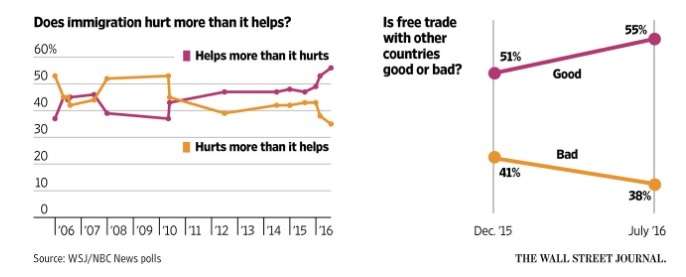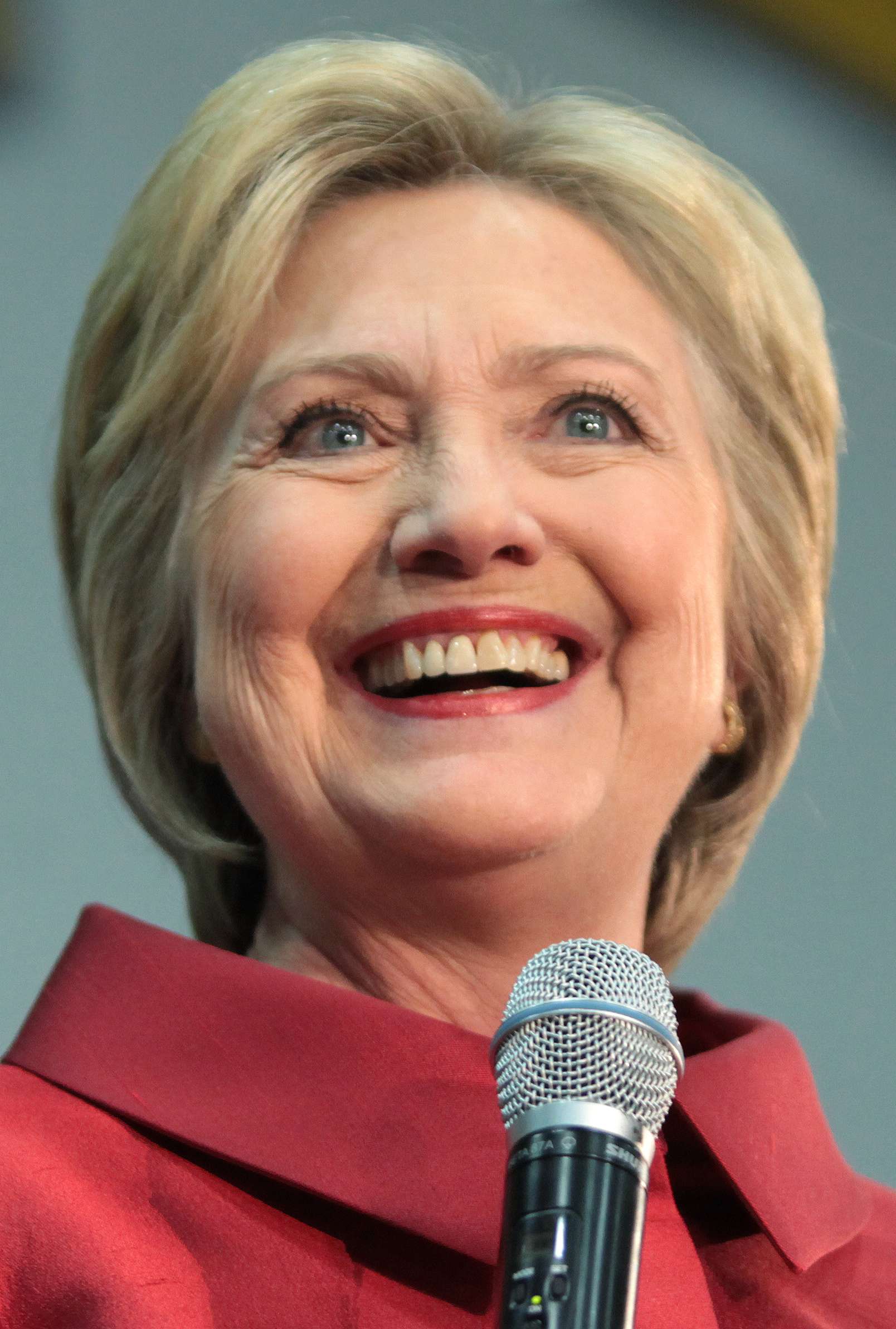Clinton, Trump Embrace Zero-Sum Thinking While Regular Dems & Reps Do Not
Protectionism is popular only with party elites, not regular Americans.

One of the most unfortunate turns of this election cycle is a bipartisan embrace of trade protectionism and, on the part of the Republicans at least, a rejection of pro-immigration policies. Donald Trump thunders again trade deficits with the same brio he displays when talking about illegal immigrants, at one point declaring that we should only have military obligations with countries with which we have trade surpluses. "Why would we spend the money on troops if we are running trade deficits with these kind of countries," he told The New York Times. Hillary Clinton may be slightly less bombastic but is equally against free trade deals these days. Despite a history of supporting free-trade deals such as NAFTA and the Trans-Pacific Partnership, she now opposes the latter and has been trashing the former for almost 10 years.
Odder still is the fact that most voters support free trade. According to a recent Wall Street Journal poll, for instance, 55 percent of Americans believe that "free trade with other countries is good," compared with just 38 percent who do not. The same survey finds that nearly 60 percent of us believe immigration "helps more than it hurts," or nearly twice as many think immigration is a drain on the economy.

Writing in the Journal, Greg Ip argues that the success of Bernie Sanders' insurgency caused the shift to anti-trade rhetoric for the Democrats, especially after years of slow or no economic growth.
Democrats have always been preoccupied with income distribution and poverty. Nonetheless, under President Bill Clinton they came to accept that growth was the most effective stimulant for middle-class incomes. "Only a thriving economy, a strong manufacturing base, and growth in creative new enterprise can … meet the nation's pressing human and social needs," its 1992 platform declared.
Maybe, but the fact that Clinton called NAFTA "a mistake" back in 2007 suggests something longer-term is driving the focus on splitting up a shrinking pie rather than growing it. On the Republican side, it seems as if the party's anti-immigrant animus has infected its general acceptance of trade too. Trump, writes Ip, has brought a Democratic-style belief in zero-sum economics from the way he does business:
Mr. Trump, however, brings a perspective forged by a business career in which success often came at the expense of suppliers, lenders or partners. Mr. Trump sees economics much the same way: If you're not winning, you're losing. Last month he said of trade expansion with other countries: "They get the expansion, we get the joblessness."
Whatever the actual origins of zero-sum economic thinking, it's nothing short of amazing that both parties now are led by trade protectionists who are at odds with the majority of regular Americans. As Ip notes, less trade and immigration will ultimately hurt economic growth, but Clinton and Trump aren't on board. "In a year when both parties are rallying their partisans by portraying the economy as a win-lose proposition," he argues, "most Americans still think it's win-win."
Steve Chapman recently pointed out how much richer we've become due to NAFTA and other trade deals. Read all about it here.


Show Comments (45)